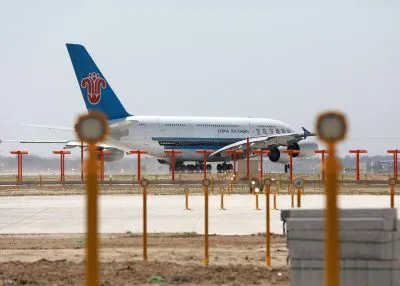The Nigerian government appears to have taken drastic steps to reassure Nigerians and, indeed, an anxious international community, that it is in full control of the security situation in the country by launching a major offensive designed to put an end to the senseless violence that has claimed many lives and led to the destruction of property worth millions of dollars, writes Frederick Mordi.
At the end of the World Economic Forum (WEF) held in Cape Town, South Africa in May, it was announced that Nigeria would host the 24th edition of the WEF in Abuja, the nation’s capital, next year.
This would be the first time for a West African country to host the WEF, as the previous editions had taken place in South, North and East Africa. Incidentally, the proposed event will take place during Nigeria’s centenary. This, no doubt, will greatly boost the nation’s image. Commenting on this development, Nigeria’s Minister of Finance, Dr Ngozi Okonjo-Iweala, said: “I think we epitomise a lot of things about Africa. We have the excitement, the passion, the entrepreneurship, the private sector drive and the glow for the future. But we also epitomise all of the difficult challenges of the continent such as infrastructure deficit, governance issues, corruption and transparency.”
She believes these challenges only make Nigeria an exciting proposition for discerning investors as they tend to bring out the ingenuity in entrepreneurs who are assured a large, ready market for their products and services. But, despite the attractions of the country’s huge market and its importance to the continental, especially the West African region’s economy, the current security situation in Nigeria has set alarms bells ringing. Nigeria’s President, Goodluck Jonathan, who attended WEF, had to cut short his trip to deal with growing insecurity threats at home.
Indeed, the security situation in Nigeria has been a major cause of concern not only to Nigerians themselves, but also to the international community, for quite some time now, as violence seems to spiral out of control in spite of measures taken to curb it. It is believed the current sustained attacks, by Boko Haram, on the Nigerian state has led to the loss of over 2,000 lives and destruction of property valued at millions of dollars since it began in 2009.
State of emergency
Last month, May, Jonathan declared a state of emergency in three out of the 36 states of the federation: Borno, Yobe and Adamawa, all in the north, which have been at the centre of the violence, after exhausting all avenues for dialogue. In a televised national broadcast, Jonathan said: “What we are facing is not just militancy or criminality, but a rebellion and insurgency by terrorist groups which pose a very serious threat to national unity and territorial integrity. We will hunt them down, we will fish them out, and we will bring them to justice.”
He had offered the olive branch to the perpetrators of the violence that has engulfed several states in the northern parts of the country several times, but his overtures were rebuffed.
A Presidential committee on dialogue and peaceful resolution of security challenges in the north, comprising eminent Nigerians, was also set up to work out an amnesty deal for members of the sect to encourage them to lay down their arms. This has so far not yielded much fruit.
The President, who said he was duty bound to protect the territorial integrity and sovereignty of the country by wielding the big stick, did not rule out future dialogue. However, unlike in the past where governors of states under emergency rule were suspended from office during the period, politicians in the current three affected states have remained in their posts.
Divided views
However, the major opposition party in the country, the Action Congress of Nigeria (ACN) and the highly influential Nigerian Governors’ Forum (NGF), an umbrella body of state governors, kicked against the action, expressing fears that it might not achieve much result.
In a swift reaction, senior special assistant to the President, Public Affairs, Dr Doyin Okupe, insists that Jonathan has ‘overwhelming support’ from a broad spectrum of Nigerians over his declaration of a state of emergency in the three states.
Okupe, who expressed the President’s gratitude to the international community for their understanding, said that the military will operate according to acceptable rules of engagement and will pay particular attention to the safety of the citizens of the affected states during this period.
He said: “Mr President also noted that the efforts of the armed forces have already started yielding positive results, as available information has confirmed that the insurgents have been dislodged from their previous safe havens and camps, while many have been apprehended, and their activities in the affected states have been brought to a total halt.”
Boko Haram, an extremist Islamist group that seeks to establish a sharia system in northern Nigeria, has been incriminated in several acts of violence both against the Nigerian state and foreign interests. While some analysts blame the insurgency on apparent endemic poverty in the north, others believe the root cause is political. Those who insist the crisis has political undertones recall that former President Olusegun Obasanjo faced similar challenges shortly after he took the reins of office in 1999, the year that Nigeria retraced its footsteps to democracy after 16 years of uninterrupted military rule.
The then governor of Zamfara state, Sani Yerima, had declared sharia law in the state, which heightened tension in the country. But they are quick to add that there are several other nations whose security challenges would make Nigeria’s pale into insignificance. What Nigeria is experiencing, they argue, are mere teething problems associated with a nascent democracy. They believe the situation will normalise as the nation’s democracy matures.
Investors undeterred
Interestingly, this perceived state of insecurity in Nigeria does not seem to have shaken investors’ confidence. Indeed, there has been a lot of speculation outside that the country is about to plunge into civil unrest and investors are holding back. On the contrary, recent reports indicate that investors are trooping to the country. For instance, a group of investors from the UK, who visited the country only in May, expressed their desire to help fund Nigeria’s $15bn (N2.37trn) infrastructure requirements in the next five years.
The UK’s shadow Secretary of State for Business, Innovation and Skills, Chuka Umunna, made this known in Lagos during the London Chamber of Commerce and Industry and the UK Trade and Investment Group’s trade mission. Umunna said: “In terms of raising finance that is something we do very well in the City of London. The finance can be made available through simple syndicated loans, bilateral loans or other more complex financing means.
“We have the world’s global financial services sector in London, we need to grow the $14bn to $15bn worth of investment needed for Nigeria to develop infrastructure and our financial sector can play a huge role in that. We are very keen to do business and raise finance for investments in Nigeria.” Umunna, the leader of the delegation, said biotechnology, agriculture and health infrastructure are key areas of interest to investors in the Nigerian economy. While noting that doing business in Nigeria can be daunting, he said the gains dwarf the challenges.
The acting deputy British High Commissioner, Mike Purves, also supported this view when he said, “UK companies are looking beyond the perception of Nigeria and looking at the opportunities.”
Manitoba Hydro of Canada, which won the bid to manage Nigeria’s power transmission company last year, and General Electric (GE), a US Fortune 500 company, which signed several MoUs with Nigerian companies in January in infrastructure development, are among high-profile investors that have moved to take advantage of the untapped opportunities in the countrys.
From all indications, it does appear that the Boko Haram phenomenon and the state of emergency are not having an adverse impact on business, given investors’ vote of confidence.
Want to continue reading? Subscribe today.
You've read all your free articles for this month! Subscribe now to enjoy full access to our content.
Digital Monthly
£8.00 / month
Receive full unlimited access to our articles, opinions, podcasts and more.
Digital Yearly
£70.00 / year
Our best value offer - save £26 and gain access to all of our digital content for an entire year!

 Sign in with Google
Sign in with Google 





